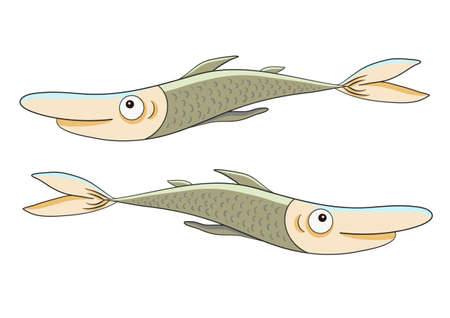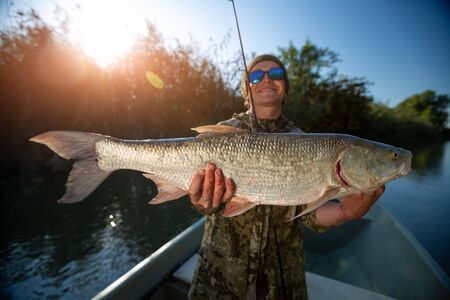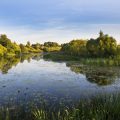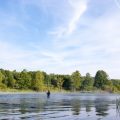Understanding Accessible Angling in the UK
Accessible angling has become a cornerstone of inclusivity within British fishing culture, reflecting a collective drive to ensure everyone can enjoy this traditional pastime. Across the UK, the landscape for disabled-friendly fishing locations is shaped by both evolving standards and a strong sense of community responsibility. Access standards at fisheries and waterside venues are guided by frameworks such as the Equality Act 2010, which mandates reasonable adjustments to remove barriers for people with disabilities. As a result, many popular fishing spots now offer features such as level pathways, accessible pegs, adapted toilet facilities, and designated parking bays.
Beyond legal compliance, there is an increasing recognition within angling clubs and organisations—such as the Angling Trust—of the importance of proactive accessibility measures. This includes staff training on assisting disabled anglers, providing information in accessible formats, and collaborating with local disability groups to identify potential improvements. These efforts not only uphold legislative requirements but also enrich the social fabric of British angling, fostering an environment where camaraderie and fair competition thrive.
Accessibility matters deeply in the UK’s angling scene because it aligns with broader British values of fairness, respect, and community spirit. Inclusive fishing locations encourage participation from all backgrounds and abilities, nurturing talent and passion across generations. As a result, anglers with disabilities are increasingly visible at both recreational lakes and competitive events nationwide—a testament to ongoing progress in making UK fishing truly open to all.
2. Researching and Choosing the Best Locations
When preparing for an accessible angling experience, the key to a successful outing lies in strategically identifying fisheries that prioritise inclusivity. The UK boasts an impressive range of disabled-friendly fishing venues, but selecting the right one requires careful research and use of modern tools. Below, we delve into technical strategies for pinpointing the ideal locations.
Trusted Resources for Accessible Fisheries
Start your search by consulting official organisations such as the Angling Trust and Fish Legal, which regularly update databases on accessible fishing spots across England, Scotland, Wales, and Northern Ireland. These resources often include detailed information about facilities, parking arrangements, and onsite support, helping you make informed decisions.
Online Communities and Forums
Engaging with online communities is invaluable for real-world insights. Platforms like The Disabled Anglers’ Network and regional Facebook groups allow anglers to share their experiences, post reviews, and offer advice on accessibility. These forums are particularly useful for learning about the nuances of different fisheries—such as ease of access to pegs or the availability of adaptive equipment—that may not be captured in official listings.
Specialist Apps for Location Scouting
Several apps cater specifically to the UK angling community, offering filters for accessibility features:
| App Name | Main Features | Accessibility Filters |
|---|---|---|
| Fishbrain | User-generated reports, catch logs | Disabled-friendly venue tagging |
| iAngler | Location mapping, event listings | Accessible pegs/paths indicators |
| Angling Times App | Venue guides, news updates | Search by accessible facilities |
The Role of Local Angling Clubs
Your local angling club can be an essential ally. Many clubs actively work to improve access at their waters by installing level pathways, wheelchair-accessible platforms, and adapted toilets. Club members are usually more than happy to provide first-hand guidance or even arrange private visits to help you assess suitability in person.
A Pro Tip: Site Visits and Direct Enquiries
If possible, contact fishery managers directly or arrange a site visit before your trip. This allows you to verify details like car park proximity, surface conditions of paths, and availability of assistance—crucial factors for ensuring comfort and safety during your session.
By leveraging a blend of digital tools, community wisdom, and local expertise, you can confidently shortlist the most accessible and rewarding fishing locations tailored to your specific requirements across the UK.

3. Essential Preparation Before Your Trip
Proper planning is the cornerstone of a successful and enjoyable fishing experience, especially when accessibility needs are a priority. Here’s a step-by-step guide to ensure your pre-fishing preparation covers all bases for disabled-friendly angling across the UK.
Contacting Venues: Confirming Access Facilities
Before setting off, it’s vital to reach out directly to your chosen fishing venue. Enquire specifically about disabled access features such as ramps, accessible toilets, adapted platforms, and nearby parking. Many fisheries and clubs in the UK are proud of their inclusive facilities and will provide clear details or even photographs upon request. Don’t hesitate to ask about on-site support staff or available assistance – some venues offer help with equipment transport or baiting up if needed.
Checking Weather and Water Conditions
British weather can be notoriously unpredictable, so a thorough check of the forecast is essential. Use reliable sources like the Met Office to monitor rain, wind, and temperature changes that might affect both accessibility and safety at waterside locations. If you use mobility aids or wheelchairs, consider how wet or uneven ground could impact movement. Some adaptive anglers prefer venues with hard-standing paths or platforms during inclement weather for extra stability.
Packing Crucial Adaptive Equipment
Your kit should be tailored not only for fishing success but also for comfort and independence. Essentials include:
- Adaptive rods and reels designed for easier grip or one-handed operation
- Lightweight folding chairs or specialised angling seats with added support
- Waterproof clothing, high-visibility jackets, and protective gloves
- Portable ramps or matting if you anticipate challenging terrain
- A basic first aid kit and charged mobile phone for emergencies
Proactive Communication
If youre part of an angling club or group, share your plans with fellow members. They may offer valuable insights into site-specific challenges or even join you for extra support. Additionally, some local authorities or charities provide resources on accessible transport options if you don’t drive.
Summary: Setting Yourself Up for Success
The more prepared you are before leaving home, the smoother your day by the water will run. Diligent planning ensures you can focus on enjoying the UK’s best disabled friendly fishing spots safely and comfortably.
4. On-Site Access: Practical Advice and Tactics
When it comes to enjoying a seamless angling experience, on-site accessibility can make or break your day out. Whether you’re planning a solo trip or heading out with support, these hands-on tips—aligned with British best practice—will help ensure that your visit to any disabled-friendly fishing venue across the UK is both safe and enjoyable.
Accessible Parking: A Stress-Free Start
Most reputable fisheries and angling clubs now offer designated disabled parking bays close to main access points. Before setting off, contact the venue to confirm availability and whether a Blue Badge is required for parking privileges. Consider the following:
| Venue Feature | Key Considerations | Recommended Action |
|---|---|---|
| Disabled Parking Bays | Proximity to water, surface condition, signage | Book in advance if possible; bring Blue Badge |
| Drop-off Points | Sheltered from traffic, step-free kerbs | Arrange drop-off with venue staff if needed |
Fishing Platforms and Pegs: Prioritising Comfort & Safety
The best venues provide purpose-built accessible fishing platforms or pegs. These are usually wider, have guard rails, and feature non-slip surfaces. When scouting locations, check:
- Platform width (suitable for wheelchairs/mobility scooters)
- Surface material (timber with anti-slip coatings is standard)
- Guard rail height and strength for added security
- Ease of transfer from chair to seatbox if needed
Pathways and Terrain: Navigating with Confidence
A common barrier at traditional venues is uneven or muddy paths. Top accessible sites invest in maintained, hard-standing pathways. Confirm with the venue:
- Main routes are tarmac or compact gravel (not grass or loose stones)
- No steep gradients or sharp turns en route to pegs/platforms
- Clearly marked wayfinding for easy orientation around the site
Onsite Support: Making Use of Local Resources
The hallmark of a truly inclusive fishery is staff who are briefed in disability awareness and able to assist. Look for venues offering:
- Pre-arranged meet-and-greet services upon arrival
- Lendable mobility aids (ramps, all-terrain wheelchairs)
- Easily accessible toilet facilities (Radar key access where applicable)
- Emergency contacts clearly displayed at every peg/platform
Tactical Tip: Communication is Key
Always ring ahead to discuss your specific needs—British venues are generally keen to accommodate but appreciate prior notice so they can ensure everything is in place for your arrival.
5. Must-Have Gear for Disabled Anglers
Equipping yourself with the right gear is essential to maximising both comfort and success on the bank. The UK angling scene offers a robust selection of adaptive tackle and accessibility-focused equipment, much of it British-made and engineered for our unique fishing environments. Here’s an insightful roundup of must-have kit that can transform your experience at disabled friendly venues across Britain.
Adaptive Tackle: Tailored Solutions
Start with rods designed for one-handed operation or fitted with custom grips—brands like Shakespeare and Leeda have lines specifically catering to anglers with reduced hand strength or dexterity. Look out for automatic line winders and bite alarms with visual or tactile alerts, giving greater independence and responsiveness during a session.
British-Made Accessibility Gear
British innovation shines in the development of high-spec chairs and platforms. Companies such as Korum and Preston Innovations offer fully adjustable, lightweight seatboxes with sturdy armrests and modular accessories—perfect for varied terrain found along British lakesides and riverbanks. For wheelchair users, seek out bank sticks and rod rests designed to clamp securely to mobility devices, ensuring stability without sacrificing manoeuvrability.
Clothing and Comfort Aids
Weatherproofing is paramount in the unpredictable UK climate. Opt for waterproofs from local brands like Vass or Fortis, alongside heated seat pads and thermal gloves for all-day comfort. Cushioned lap trays allow you to organise bait and tackle without overreaching, while compact shelters with wide doors provide easy access and protection from wind or rain.
Technical Recommendations
For those using electronic aids, ensure your gear is compatible with power banks or has extended battery life—vital for longer sessions at remote waters. Consider lightweight landing nets with telescopic handles to reduce strain, and collapsible trolleys for transporting kit efficiently across uneven ground.
Final Thoughts
The right equipment not only levels the playing field but also empowers disabled anglers to focus on strategy rather than logistics. Invest in quality British-made solutions where possible, consult fellow anglers for recommendations, and remember: well-chosen gear is as crucial as picking the perfect swim.
6. Connecting with the UK Disabled Angling Community
Becoming part of the disabled angling community in the UK is not only a fantastic way to share experiences and tips but also a strategic move to discover the very best accessible fishing locations and stay informed about new developments. By joining national networks such as the British Disabled Angling Association (BDAA), you’ll gain direct access to a wealth of resources, guides, and regular updates on accessible fisheries across England, Scotland, Wales, and Northern Ireland. Many of these organisations offer tailored advice, technical support, and even advocacy for improved accessibility at your favourite venues.
National Networks: Widening Your Reach
National bodies like the BDAA or Angling Trust’s Fishability initiative are instrumental in connecting anglers with disabilities to nationwide opportunities. Membership often includes newsletters, exclusive event invitations, and priority booking at top inclusive fisheries. These platforms also feature online forums where you can engage with fellow anglers, swap location reviews, or ask for specific accessibility advice—especially useful when planning trips to unfamiliar waters.
Local Support Groups: Building Community Spirit
Look out for local disabled angling clubs or support groups in your region. Many of these are affiliated with larger organisations but focus on grassroots engagement—organising regular meet-ups at accessible locations, buddy systems for transport assistance, and group coaching sessions using adaptive fishing gear. Whether you’re based in Yorkshire, Cornwall or the Midlands, there’s likely a nearby group ready to welcome new members keen to enjoy inclusive fishing in a friendly setting.
Events and Competitions: Showcasing Inclusive Opportunities
Don’t miss out on annual events such as the National Disabled Angling Championships or regional open days hosted by local authorities and fisheries. These occasions are designed not only to celebrate inclusivity but also to showcase innovations in accessible angling infrastructure—from improved platforms to adapted tackle demonstrations. Participating provides an excellent opportunity to network with other anglers, learn from experienced competitors, and test your skills in a supportive environment.
By actively engaging with these networks and events, you’ll stay ahead of the curve regarding new disabled-friendly fishing venues and support initiatives across the UK. More importantly, you’ll become part of a thriving community that champions equal access and enjoyment of Britain’s rich angling heritage.


